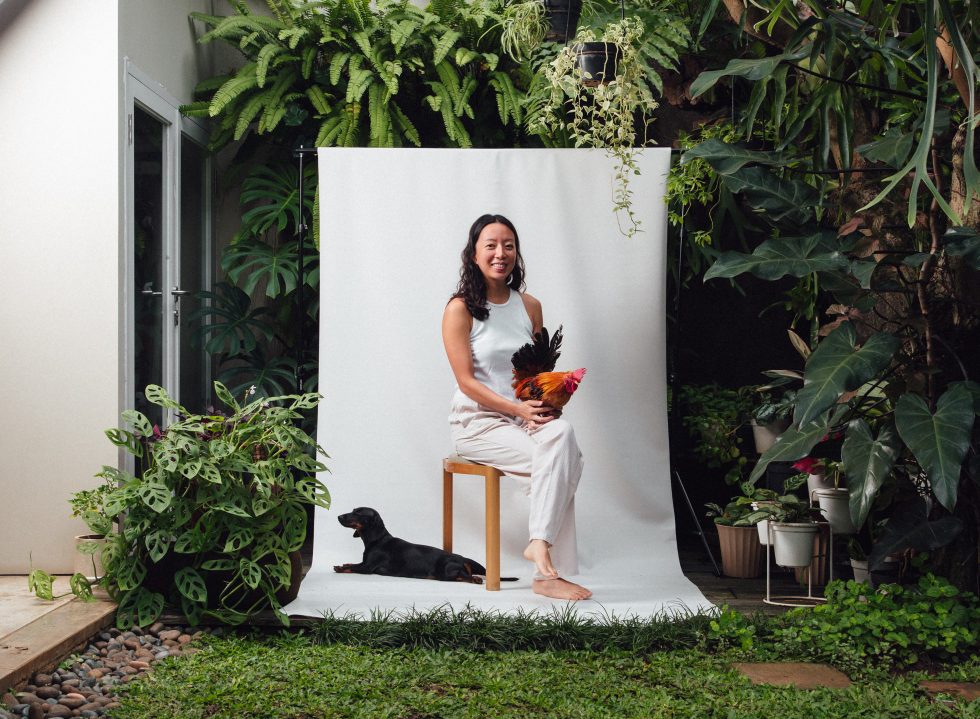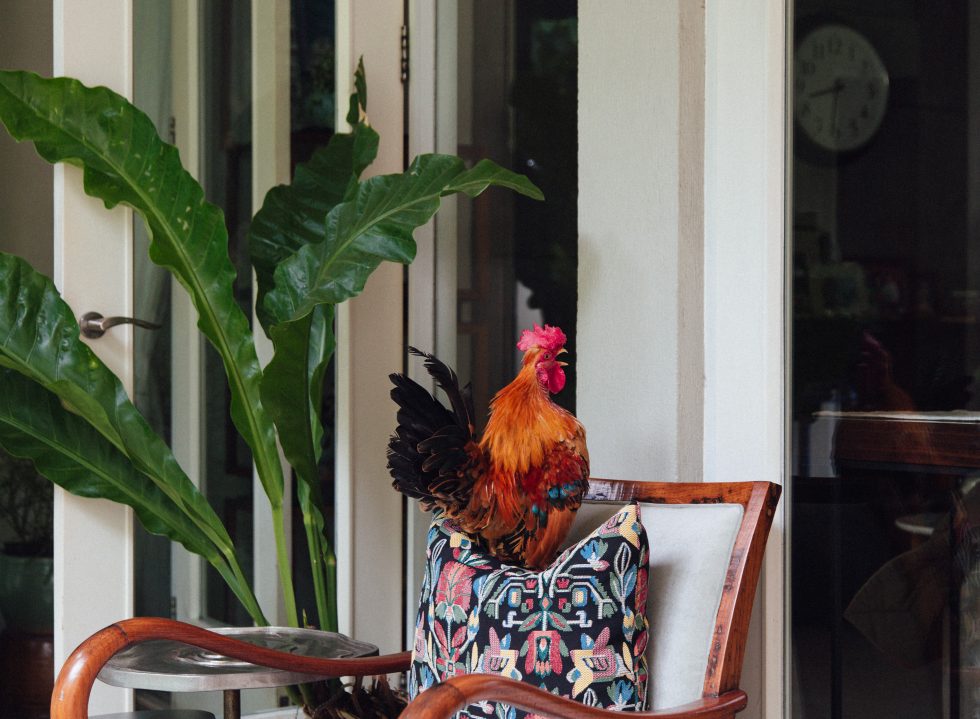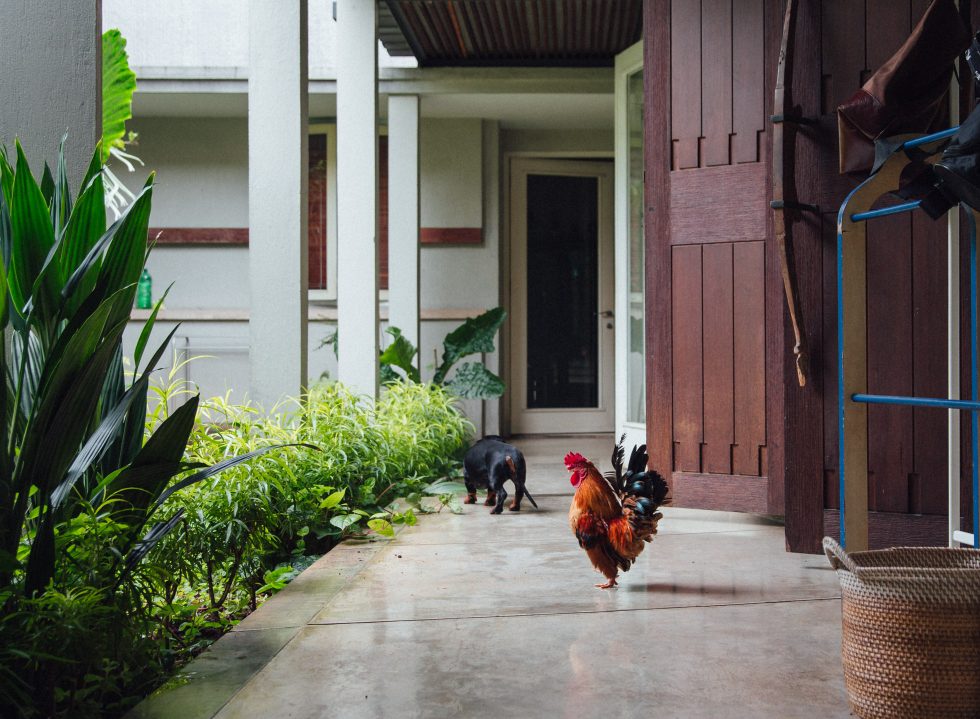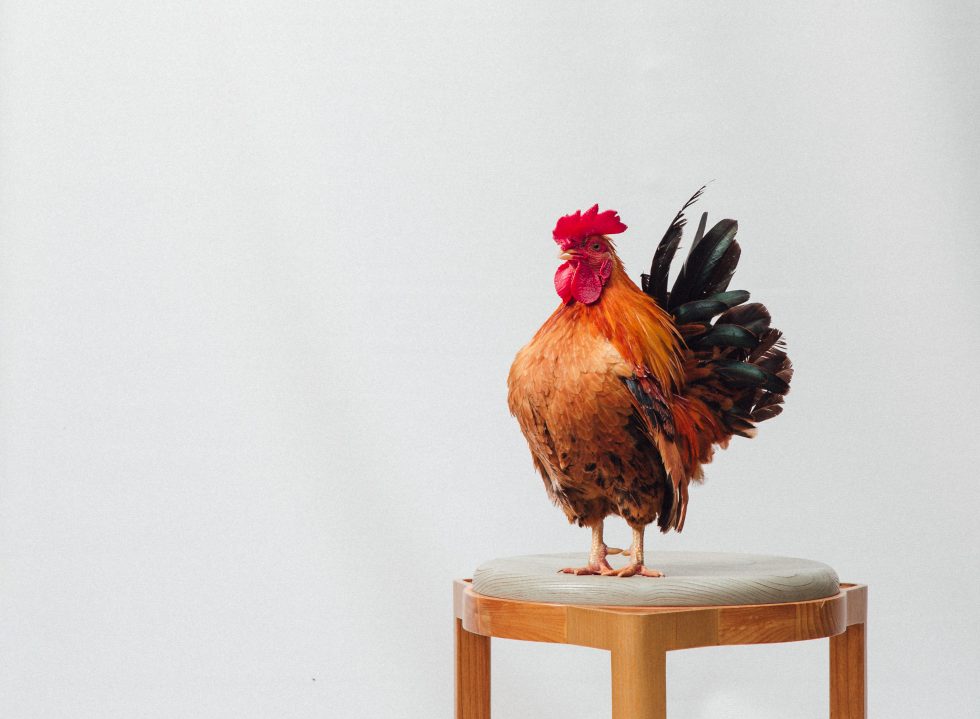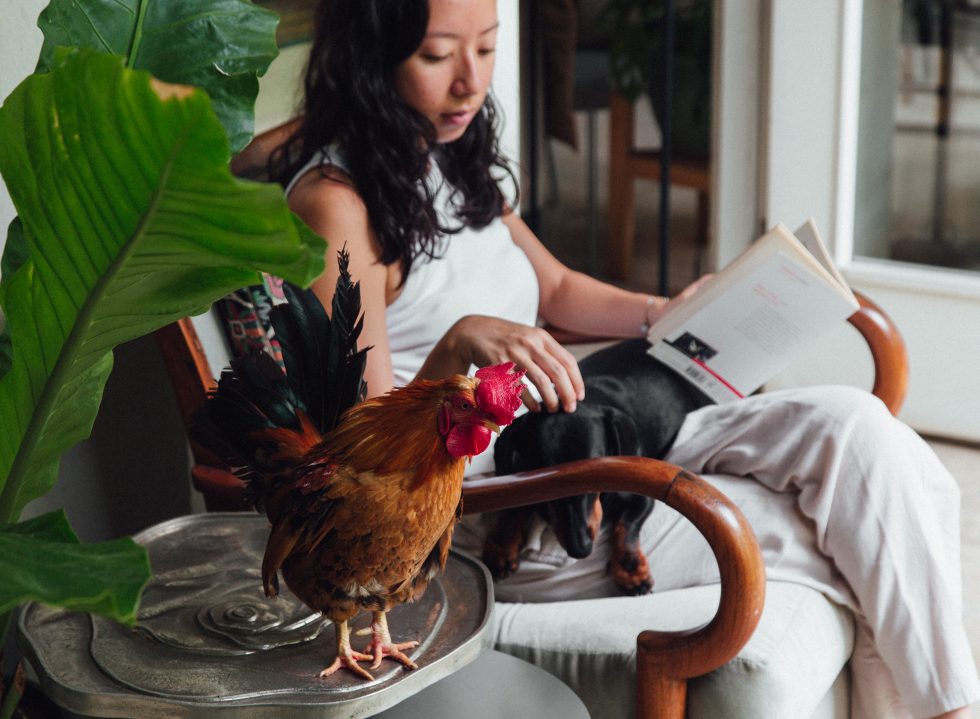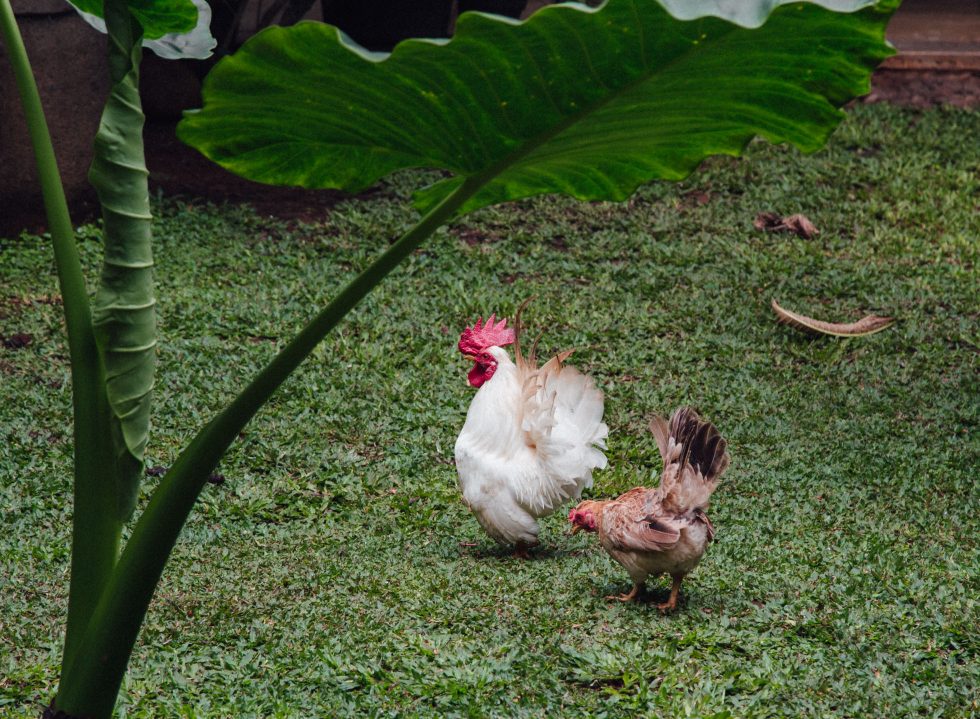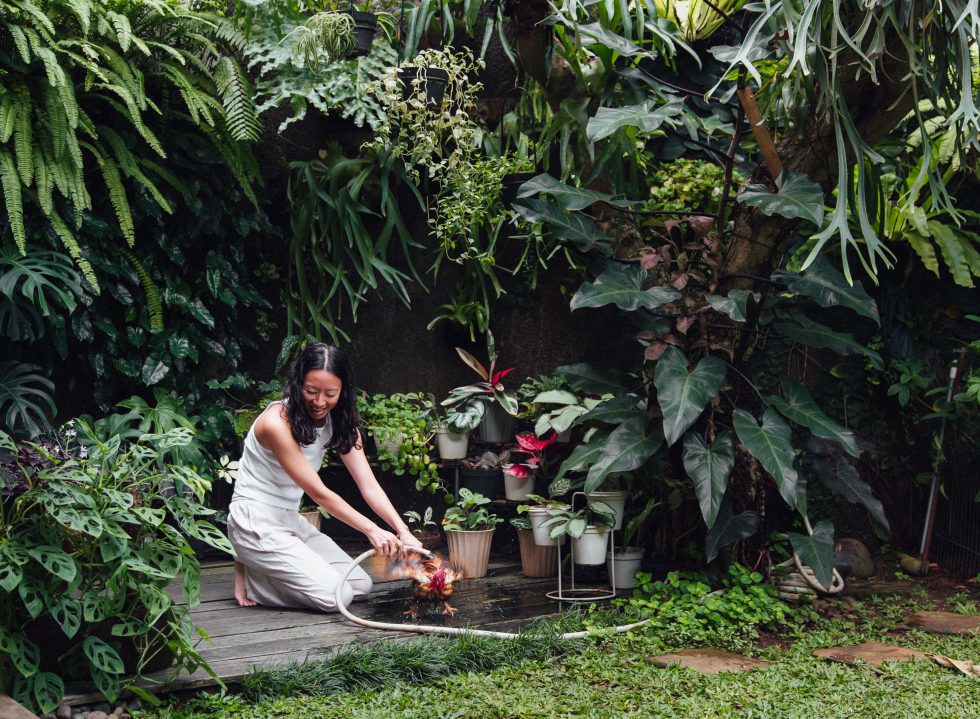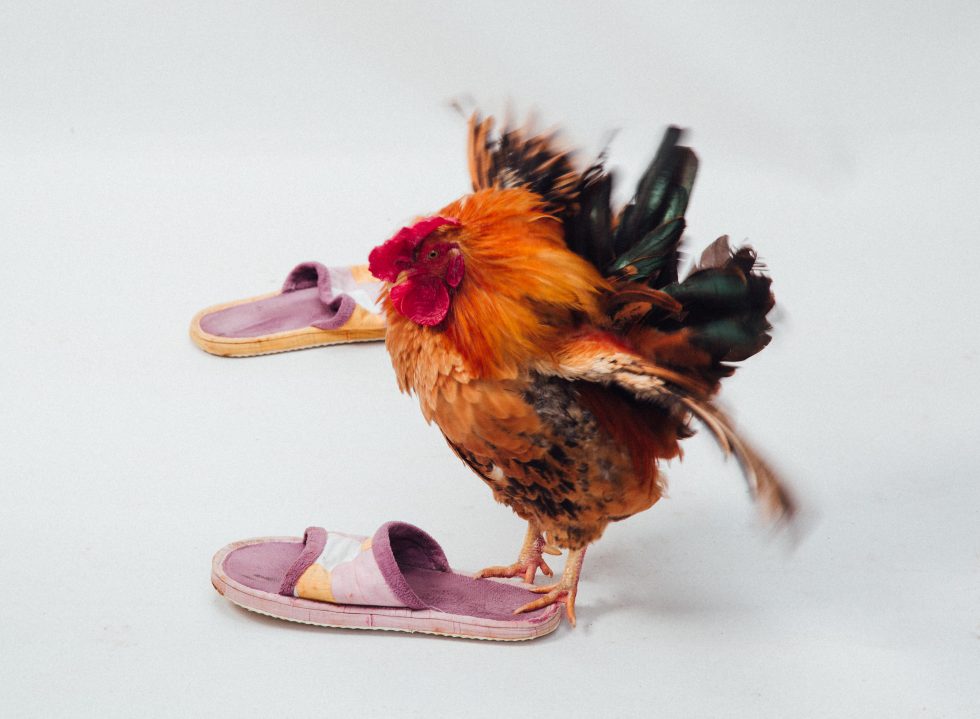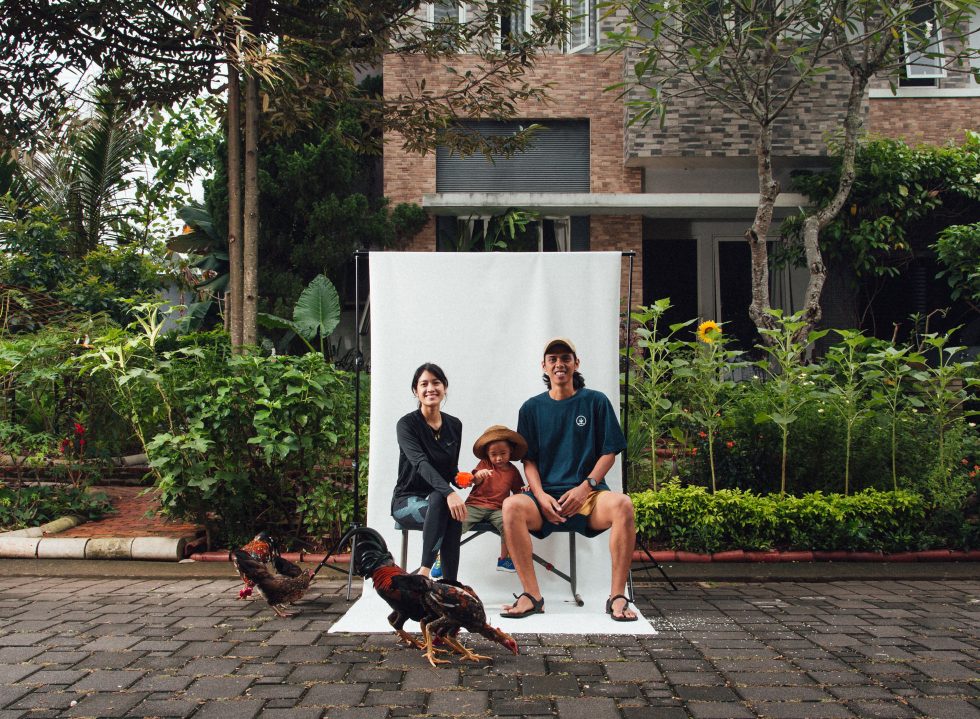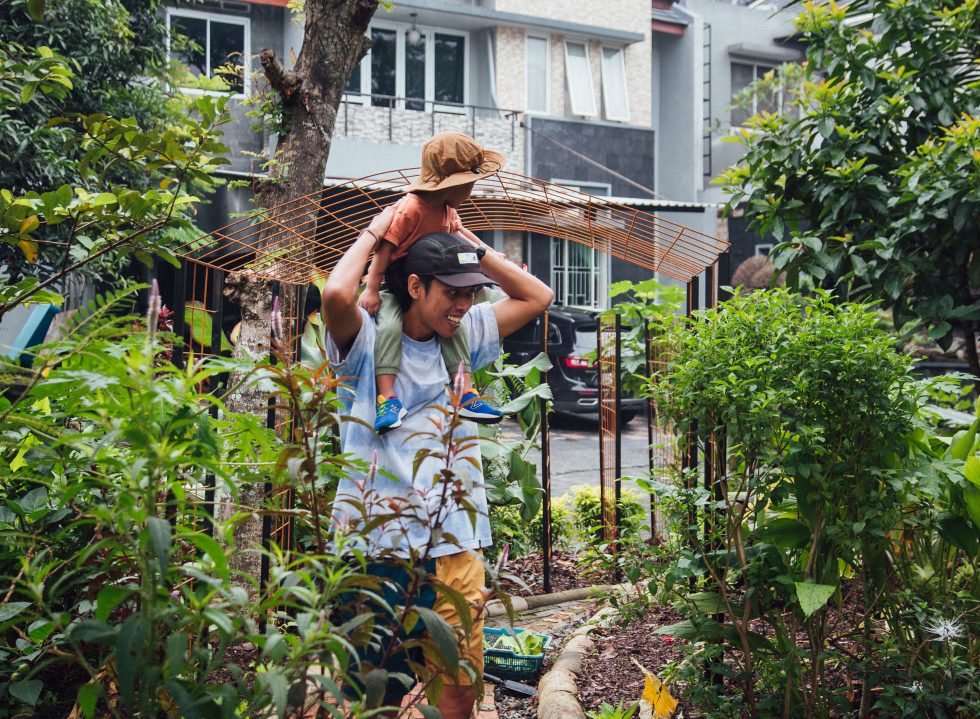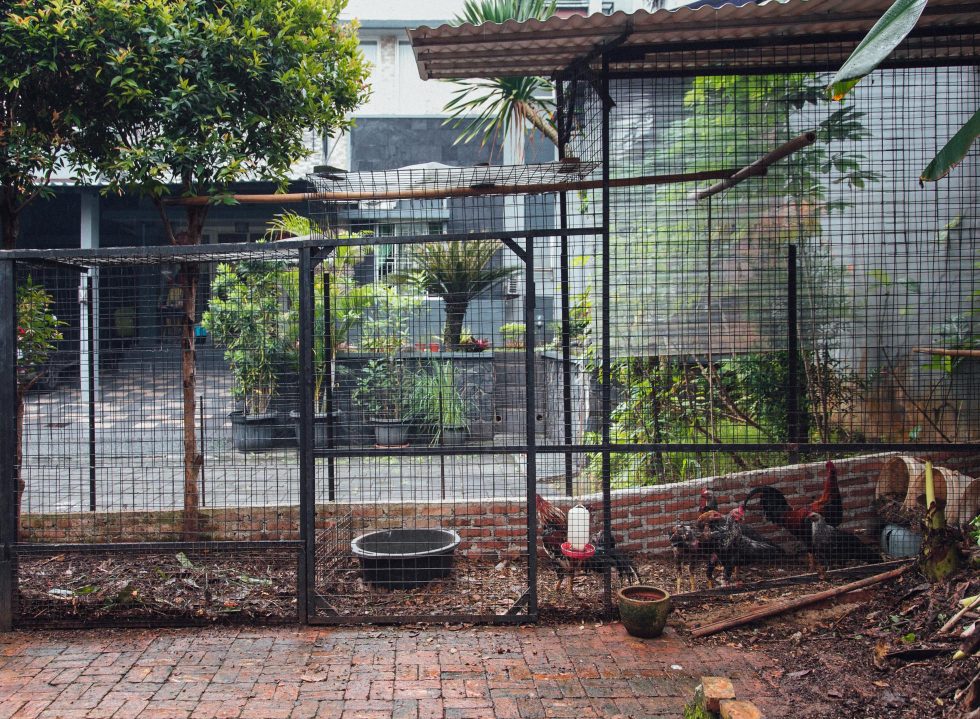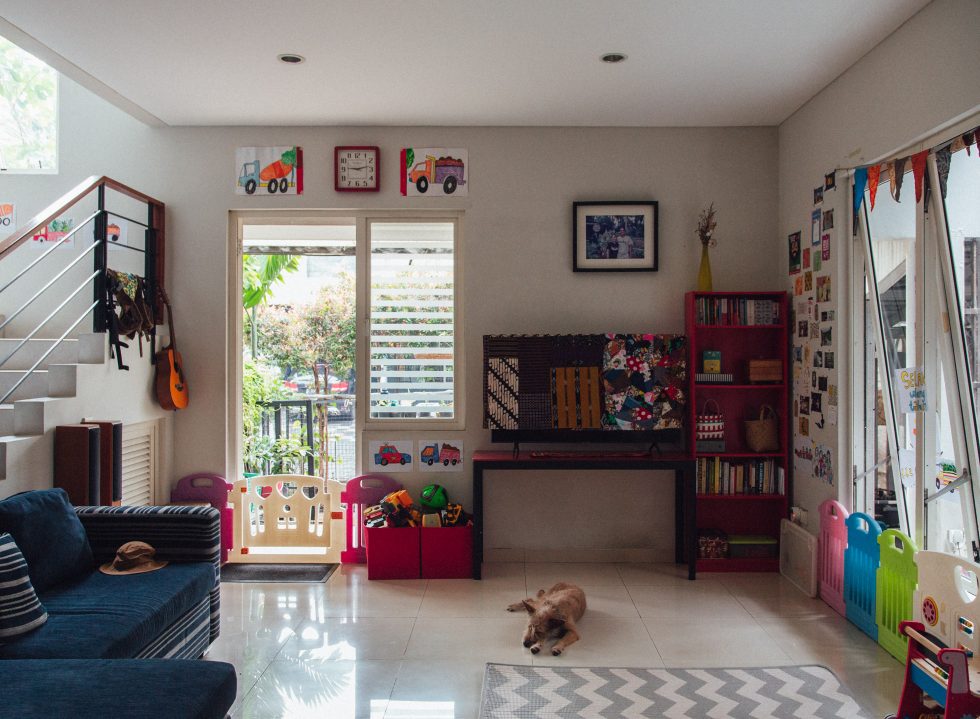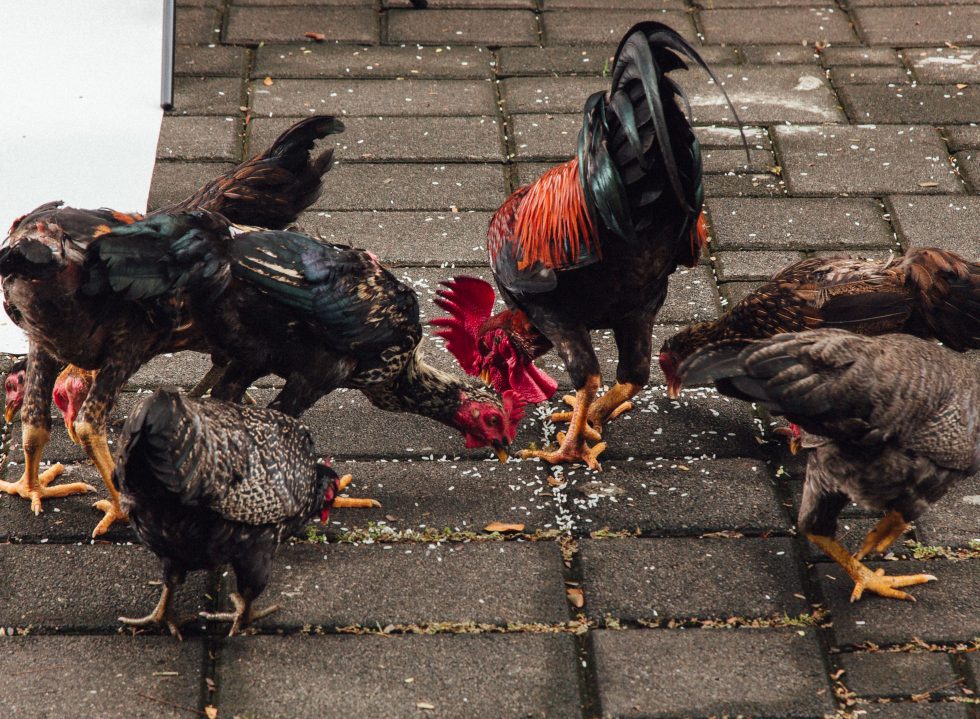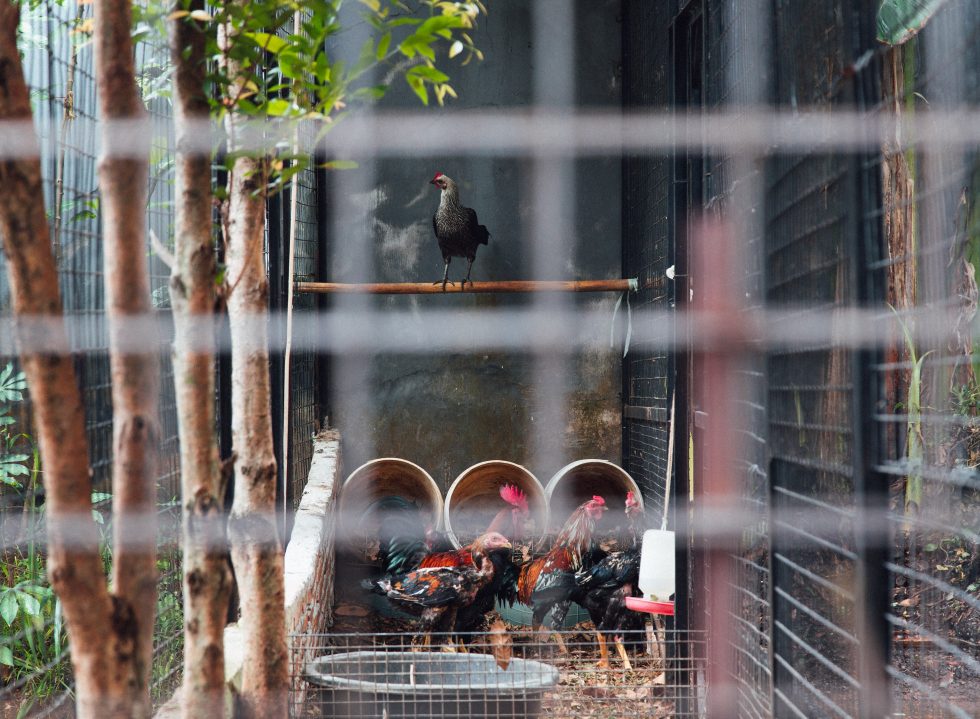Phickie’s pompadour-shaped comb twists slightly to the side. “I don’t know why, it’s always been like that,” said Talula Fidelia as she stroked her rooster’s burning orange plumage. When the pandemic blues prompted many to adopt furry companions, Lula’s family had instead decided to add the lively presence of bantam chickens into their home in Bintaro.
Three of them now roam the courtyard garden of the family’s comfy abode, filling the space with their clucking and occasional crowing. Pumpkin and Peanut, the resident-dachshunds-slash-occasional-models for the family business Sulla Home, are, fortunately, welcoming to the new additions.
“This one time, when the chickens were smaller, we fed them together with the dogs. They all crowded around us, and sometimes rice would get stuck on one of the dogs. When that happened, the chickens would peck the rice off them. It was very fun to watch,” told Lula. “Of course, it’s not always peaceful. They can get rowdy sometimes and chase each other.”
While the idea of raising backyard chickens in this day and age would raise eyebrows among the urban crowd, the practice wasn’t always uncommon in many parts of Indonesia—and still isn’t. Especially with traces of animist beliefs and superstitions that still linger in the lives of the locals, the role of chickens stretch beyond merely the functional but also cultural.
For one, a journal article published last year about the local community of Bajawa in East Nusa Tenggara describes how ayam kampong—a special breed of chicken native to Indonesia and Malaysia that requires semi-intensive care, thus usually raised in backyards—plays a big part in their rituals. During important events in their lives, locals would seek their ancestors for guidance, and for intimate gatherings of close family members, they would do the ti’i ka ebu (feeding the ancestors) with kampong roosters instead of the usual buffalos or pigs.
Phickie the bantam, however, will never meet the chopping block. Nor even his less-domesticated mother and brother, who have gone unnamed. “My family likes to joke about slaughtering some of the chickens, but I don’t think they would ever do that. I could never do that. I mean, we still eat their eggs, but never when they’ve become fully-formed chickens. That said, I am a pescatarian, so eggs and seafood are the only animal meat in my diet.”
Coddled and groomed from the moment of his hatching, Phickie displays strikingly human traits that set him apart from the other chickens in the house. “He’s a bit weird. While my other chickens like to spend their time roaming the garden and digging nooks, Phickie spends more time on the terrace. He even has a favourite armchair that he likes to sit on. And he’s obsessed with sandals.”
“Maybe there are other chickens who can show their affection like dogs, but Phickie is not one of them.”
A chicken’s mind
Priyatna Dwinanda Pribadi, a Bali-based architect as well as urban permaculture practitioner who owns 30 plus chickens and regularly teaches ayam halaman (backyard chickens) webinars, provided the answer to Lula’s bewilderment: “While chickens usually clean themselves with dust and fine dirt, you can give them a shower if you want to. But they’ll become really domesticated once you do that, just like any house pet. Same thing if you treat their wounds, they know when you’re providing care for them.”
But there are also ‘Machiavellian’ chickens who know how to take advantage of human empathy. “They can be a bit political. Some chickens would purposefully get close and act domesticated to their humans, understanding that we aren’t inclined to slaughter our favourites,” explained Pri.
In hindsight, such duplicity showcases the emotional complexity and sensitivity of chickens, which also expresses itself through interactions among their kind. As Pri stated, “We tend to underestimate chickens, but they’re actually capable of a level of gentleness that is rare even among the typical domesticated pets. When there’s food, the dominant rooster will call over members of his flock, and he won’t eat until the hens and younglings have had their fill.”
Even as a chicken becomes domesticated, however, not all are affectionate towards their human caretakers, as every chicken possesses its own distinct personality. Unfortunately for Lula, Phickie is one such case. “Maybe there are other chickens who can show their affection like dogs, but Phickie is not one of them.” Even though she wishes he were.
On chicken as livestock
While Lula (and probably many others) cringes away from the idea of eating their treasured chicken pets, Pri noted that, just a couple of generations ago, it was a very normal thing to do. “A kid can come back from school looking for their favourite chicken only to find out it has been made into their dinner.”
Although some might be quick to judge such practice as barbaric, there exists a holistic way of looking at it—and this is what fellow chicken-raiser Soraya Cassandra applies in her own practice, with the help of her mentors at Bumi Langit (a learning institution focused on building a mutual relationship between man and nature through Islamic values), which includes Pri himself.
“Coming from someone who’s non-vegetarian but concerned about animal cruelty, half of me feels guilty [about slaughtering my chickens] and another part of me believes that eating [animals] is a crucial part of our culture. It’s part of my identity, and it’s part of my relationship with my grandmother, who shows her affection through her cooking,” said the Kebun Kumara co-founder, whom most know by her nickname Sandra and her variety of educational content on urban farming.
“While I haven’t been able to slaughter any of my chickens, I’ve now been able to understand it through a more conscious lens. Krisna from Bumi Langit taught me that there exists a different relationship between you and the animal when you breed them for food because you will try to do everything that you can to make sure it lives a fulfilling life,” shared Sandra. “When it’s time to kill them, what you feel won’t be guilt, but a better appreciation for the animal. All in all, it’s not about burying the guilt, but transforming the emotion to suit the reality of the experience.”
“We tend to underestimate chickens, but they’re actually capable of a level of gentleness that is rare even among the typical domesticated pets.”
Through the lens of permaculture
Sandra lives in a verdant part of BSD with her husband Dhira, their son Biru and foster daughter Foni, Biru’s sitter Lati, the family’s rescued dog Luma, as well as a total of nine chickens. Her motivation to invite those chickens into her home, and how she goes about taking care of them, fittingly comes from a permaculture perspective.
“There are so many reasons behind my decision to raise chickens, it’s something that I’ve always been interested in since learning about integrating them into the composting process [of urban farming] at Bumi Langit. But on the whole, we want to achieve better synchronicity with nature through building a meaningful connection with these chickens, whose outputs, from its eggs and meat to the compost it makes, are part of what we eat and use,” shared Sandra.
Gigi, Gugu, Gaga, Momo and five other unnamed chickens currently roam the spacious cage the family built for them. Their needs are also well-catered for: there is ample space to perch, the drinking canister is regularly cleaned, sunshine and clean air enter freely yet still sheltered from the weather, dust baths are provided and the chickens’ omnivorous dietary requirements are fulfilled.
Beyond the usual seeds and rice, the family feeds them with edible plants, worms as well as food remains, the latter of which the chickens would process into compost for her lush garden. Their chickens also take part in gardening, with Sandra or the others directing them to places that need digging.
“In the city, there seems to be this hierarchy among pets, and the likes of dogs and cats get the best treatments. But [chickens] are actually the same: they’re susceptible to the same things, and they have a similar level of intelligence in their own unique ways,” mused Sandra. “That’s why having multiple pets is exciting because you get to appreciate different expressions of the same intelligence.”
As for inter-pet relations in Sandra’s house, the chickens seem to be generally wary of Luma the dog, but amongst themselves, their personalities pop up, sometimes even leading to violent behaviours. “They come from different places, and each has their own thing going. So they gang up and bully each other,” explained Sandra.
That led to an understanding on Sandra’s part. “Since raising these chickens, I’ve become more aware of just how many similarities we share with animals.”
“We want to achieve better synchronicity with nature through building a meaningful connection with these chickens.”
On them and us
Like any other form of relationship, the connection between chickens and their human caretakers differs with every interaction. And even as Lula and Sandra strike a distinct contrast in their manner of raising, they mutually share a desire to give better care to their chickens. “I think they would’ve told me they prefer to roam in the garden more instead of staying in their cage,” said Lula. “And I want them to know that I’m not a threat. I want Phickie to know that he’s my friend.”
As for Sandra, when asked what she would say to her chickens if they could understand her: “I think they do understand us, even if it’s just from our energy. That’s why I always ask for Gugu’s permission before taking her eggs. But ultimately, I just want to thank my chickens and also ask them what I can do to make them more comfortable.”
